A wise man once said that the business of punditry is persuasion. Assuming that’s true, we won’t be conducting any business today.
That’s because the subject of Donald Trump’s toothy thumbs-up photo op amid the fallen at Arlington National Cemetery is persuasion-proof. There are already a thousand reasons to despise him; either you came around to doing so long ago or you’ve managed to rationalize away each of them, in which case this latest one won’t pose any problem.
Years ago, it was possible to believe there might be something he could do to alienate his apologists. Callousness toward the military was an obvious one: The right prides itself on being patriotic, and patriots rightly celebrate service members for the sacrifices they’ve made to defend America. If Trump were to stoop to his usual boorishness in attacking an opponent’s military record, it was thought, he might at last discover a line he’s not allowed to cross.
How naive we were. The rest of this column could be spent revisiting his various affronts to military honor over the years: goofing on John McCain for being captured in Vietnam; “feuding” with a Muslim Gold Star family in 2016; confiding in aides that he didn’t want wounded veterans in a parade because it “doesn’t look good for me;” declining to visit an American military cemetery outside Paris in 2018 for fear, allegedly, that his hair would get wet in the rain; saying on the same trip, according to four separate sources cited by The Atlantic, that the cemetery was “filled with losers” and that the Marines at Belleau Wood were “suckers” for having sacrificed their lives.
John Kelly, a four-star Marine general who went on to become Trump’s chief of staff, confirmed all of it on the record to CNN last October. According to The Atlantic, when Trump accompanied Kelly in 2017 on a visit to the grave of the general’s son Robert, who was himself killed in Afghanistan years earlier, he turned to Kelly and said of the fallen, “I don’t get it. What was in it for them?”
In a test of credibility between a man with a dubious record of draft deferments on the one hand and a highly decorated officer who lost his son in combat on the other, it’s no contest: The right chooses to believe that Kelly, not Trump, is the liar. That’s what being “persuasion-proof” means. When Trump quasi-joked recently that receiving the Presidential Medal of Freedom is “much better” than receiving the Medal of Honor because it doesn’t involve being maimed or killed, right-wing media didn’t so much as twitch an eyelid.
To paraphrase one of his own formulations, Trump could insult a disabled soldier on Fifth Avenue at this point and not lose a single vote.
The Arlington visit is worth discussing anyway, though, just as it’s worth occasionally revisiting Trump’s infamous stunt in Lafayette Square in 2020. It’s not only a window onto his authoritarian psychology, as Jonathan Last ably explained on Wednesday, it’s the latest example of how the right’s refusal to hold him morally accountable begets awkward attempts by his critics to hold him legally accountable instead.
Rules are made to be broken.
Monday was the third anniversary of the ISIS suicide attack at Kabul’s airport that killed 13 American service members during the U.S. evacuation from Afghanistan. Relatives of two of the fallen invited Trump to visit the national cemetery with them to mark the occasion.
That’s his right. It’s also his right to take photographs while he’s there, as all visitors are allowed to do. He was apparently even granted permission to have his own photographer and/or videographer attend to chronicle the event. And the Gold Star families whom he accompanied were fine with it.
What he wasn’t allowed to do, per federal regulation, was engage in “partisan political activities” on the premises, which is why cemetery officials asked him not to bring campaign staff with him. According to multiple outlets, he was also explicitly warned not to take photos or video in Section 60, the part of the cemetery reserved for veterans of the Afghanistan and Iraq wars. You can understand why: The grief is still fresh for visitors in that area. As a matter of respect and compassion, they shouldn’t be disturbed by the presence of cameras.
Trump and his team ignored those rules, naturally, recording in Section 60 with campaign staff in tow. Then they turned the footage into a de facto campaign ad, replete with audio of Trump comparing Biden’s record in Afghanistan to his own, and posted it on TikTok.
One photo published by Utah Gov. Spencer Cox, who joined Trump on the trip, shows the group gathered behind the grave of airport bombing victim Darin Taylor Hoover. Clearly visible in the frame next to Hoover’s grave is that of Andrew Marckesano, who died a year earlier—and whose family did not give permission for their loved one’s memorial to be featured in a Trump campaign stunt, not that anyone on his team cares.
The icing on the cake is allegations of an “altercation” between a cemetery employee and members of Trump’s entourage during the visit. The employee reportedly tried to stop the group from filming in Section 60; according to an Army spokesman, she was “abruptly pushed aside.” No charges have been filed and Trump’s team claims to have footage proving that things never got physical, but there’s been plenty of verbal abuse in the aftermath. Campaign spokesman Steven Cheung accused the employee of “suffering from a mental health episode” while top adviser Chris LaCivita called her a “despicable individual” for trying to stop Trump from filming his commercial—er, I mean paying his respects.
All of this feels familiar, no?
Not the setting, that is, but Trump’s M.O. It’s the classified documents fiasco all over again. He wanted something he couldn’t have; that something was minor enough that he calculated the relevant authorities wouldn’t go to war with him to block him from getting it; so he simply ignored the rules and dared them to do something about it.
He succeeded at Arlington and might yet succeed in the other matter. That’s what happens when a gangster by temperament leads a gang that includes millions of people: In nearly every dispute, the personal cost of litigating that dispute will be greater for his opponents than it will be for him. Not coincidentally, according to military sources who spoke to the New York Times, the reason the cemetery employee chose not to press charges over the alleged altercation is that “she feared Mr. Trump’s supporters pursuing retaliation,” an entirely reasonable concern.
If Trump were president now, Jonathan Last noted in his piece, and that employee had tried to enforce the law against him and his campaign, he’d almost certainly retaliate professionally by firing her even if no one retaliated against her personally. “The only controlling limit is what the public will let you get away with” is how he describes Trump’s concept of rules, aptly.
A valuable thing.
Very much relatedly, Trump has always struggled to subordinate his personal interests to the public interest. That’s how he came to inquire of John Kelly what was “in it” for the men who died for their country.
I think he views access to government power and iconography the same way former governor turned Apprentice contestant turned federal convict turned Trump commutee Rod Blagojevich views Senate appointments. They’re a “f—ing valuable thing,” and no gangster worth his salt would turn down a f—ing valuable thing for something as airy as decorum or respect for the dead.
“Trump has repeatedly defied restrictions on using federal property for campaign purposes by staging a political speech at Mount Rushmore, participating in a television interview inside the Lincoln Memorial, and holding the 2020 Republican National Convention at the White House itself,” the Washington Post remembered in a story about his Arlington visit. Iconic public monuments are a valuable thing as backdrops for a politician eager to identify himself as a super-patriot and national savior, and Arlington National Cemetery is certainly iconic.
His eagerness to exploit official power for private benefit goes beyond exploiting federal property, though. When White House adviser Kellyanne Conway was accused of “persistent, notorious and deliberate Hatch Act violations” by the U.S. Office of Special Counsel in 2019, Trump shrugged it off and vowed not to fire her. He himself famously declined to place his business holdings in a true blind trust upon taking office in 2017 despite—or because of—the possibility that his financial interests might influence his decisions as president.
What was his first impeachment about if not the lengths to which he was willing to go to leverage his official power to serve his personal ends? What is the classified documents scandal about if not Trump’s “insistence that the trappings of power and property of the state should be inseparable from the person and interests of the dear leader,” in Last’s words?
He dominates his party to such a freakish degree that even his relationship with congressional Republicans has the feel of someone exploiting a public asset for private gain. The Daily Caller reported on Wednesday that House Speaker Mike Johnson and Rep. Mike McCaul intervened on Trump’s behalf after officials at Arlington initially resisted his visit, which the Caller implies was motivated by corrupt cemetery personnel wanting to deny the Republican nominee a powerful public appearance.
Maybe. Or maybe defense officials simply believe that a military cemetery should be a sanctuary from politics for the bereaved and other grateful visitors rather than the set of a political ad. According to the Post, they “were deeply concerned about the former president turning the visit into a campaign stop”—and were right to be, it turns out. But one thing about prominent gangsters is that they have many associates willing to abet them in their schemes; in Trump’s case, those associates happen to include figures as powerful as the speaker of the House.
If Trump was there to honor the dead rather than to cut a commercial, he could have attended, saluted, consoled the families, and left the cameras and campaign flunkies at home, and no one would have had any problem. But character, alas, is destiny. “He never understood why would you do anything that doesn’t benefit you,” a former senior Trump White House official (who sounds a lot like John Kelly) told the Post. “I remember talking to him about death and sacrifice for the country, and it was like talking Greek to him. That’s why it’s the height of hypocrisy he’s there laying a wreath, given his general feelings about veterans.”
The grimmest irony of this episode is that it was Spencer Cox, of all Republicans, who ended up by his side for the photo op. For years, Cox has positioned himself as a voice of civility in an increasingly Trumpy party; not until last month did he finally endorse his party’s nominee, leading The Atlantic to dub him “The Last Man in America to Change His Mind About Trump.” As if to prove how quickly Trumpism can corrupt its converts, within weeks he had a minor part in his new friend’s attempt to shamelessly politicize the country’s most hallowed cemetery.
Gangsters have many associates. Trump now has another.
Laws and norms.
On Wednesday afternoon, a Dispatch colleague and I found ourselves in a heated legal debate in the company Slack over whether Trump broke any laws with his Arlington visit.
My colleague thought he was in the clear from the federal regulation banning ceremonies that include “partisan political activities” at military graveyards. He hadn’t done anything explicitly “partisan” there, after all. All visitors are allowed to take photographs, and he was a visitor. And two Gold Star families had invited him. It wasn’t like he was barging in on their gathering.
I countered that his activity became “partisan” when he turned the footage into a TikTok clip in which he expressly criticized the Biden-Harris White House for its Afghanistan fiasco. We’re two months out from an election, and he’s the Republican nominee for president. He shouldn’t be required to hold up a sign reading “Trump 2024” or “Vote GOP” to run afoul of the regulation’s language.
Nor should it matter that the two families invited him. The Marckesano family didn’t. Other grieving families visiting Section 60 didn’t. The relatives of the fallen are among America’s most sympathetic figures but they don’t get to carve out their own exceptions to federal law. The point of the regulation is to keep Arlington free from politics; if Trump gets a pass because he was able to find some supportive Gold Star families willing to chaperone him there, it won’t be hard for Democrats to find Trump-hating families to chaperone their own campaign stunts at the cemetery.
It’s an interesting legal debate! It’s also incredibly dispiriting that we felt obliged to have it.
Law simply shouldn’t matter here. The way you deter Trump and other sociopathic politicians from treating gravesites as stage sets is by shaming them and punishing them politically for their callousness. But … how you do that when the people in the best position to inflict that punishment, right-wing voters, refuse to do so?
This is the entire Trump legal saga in a nutshell. I remain convinced that the Justice Department never would have pursued him for interfering in the 2020 election had the right not given him a pass on it, morally and politically. If Senate Republicans had joined Democrats in disqualifying him from future office at his second impeachment trial, that would have been that. Or if Republican voters had turned their backs on him and rendered him an also-ran in this year’s presidential primary, that too would have been that.
In either case, the DOJ and the state prosecutors who’ve indicted him might have concluded that a disgraced Trump being held morally accountable by the right was enough to deter future coup-plotters. There’d be no urgent need in that case for the justice system to provide added deterrence given how wrenching it would be for the country to put an ex-president on trial.
As it became mortifyingly clear that the right wouldn’t hold Trump accountable for anything, prosecutors decided that the law would have to supply the needed deterrence instead. That’s how we ended up with special counsel Jack Smith awkwardly trying to shoehorn Trump’s coup plot into a statute about fraud. And that’s how we ended up in the Dispatch Slack channel yesterday with me trying to shoehorn a TikTok video into a regulation about “partisan political activity.”
“This case is a bit like the Trump problem in miniature,” a second colleague observed during our Arlington debate. “Arguably not illegal but odious in a way the law couldn’t anticipate.” Just so. There’s no statute that squarely prohibits coup plots because lawmakers never imagined someone would try one—or that the people and their representatives would decline to deal harshly with anyone who dared.
The same goes for Trump’s photo op. Who would have thought a regulation might need to be extra specific in order to stop politicians from campaigning in military graveyards? Shouldn’t shame suffice to deter them?
Trump has no shame, and Republicans have completely abdicated their civic responsibility to make him behave as if he did. In a thoroughly amoral, persuasion-proof political culture, the only solutions to moral problems are legal ones.
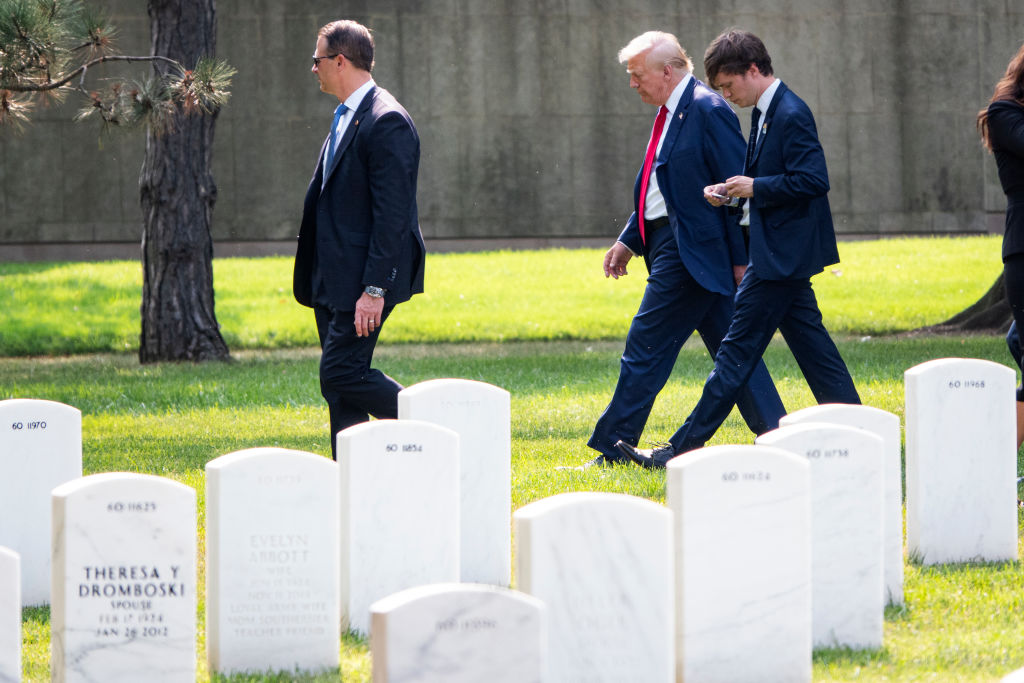

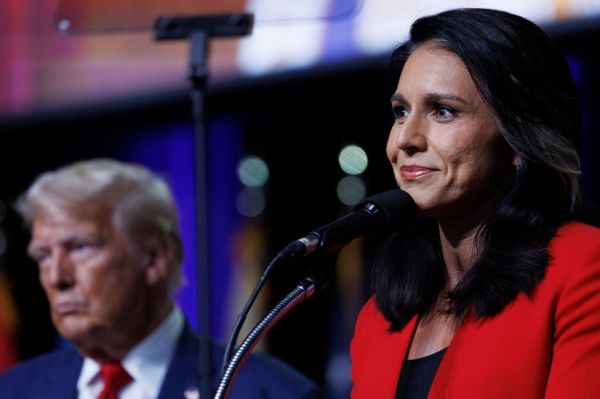
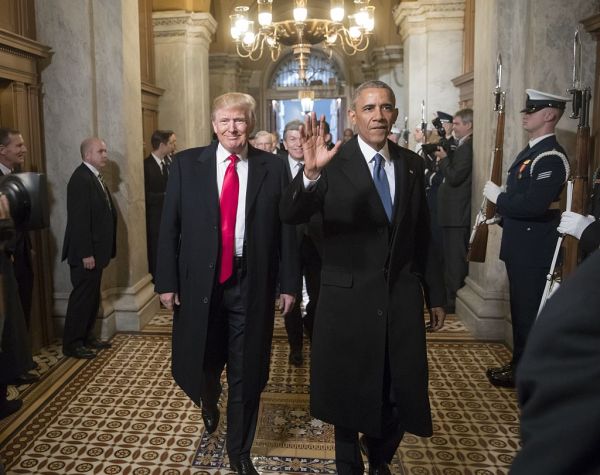
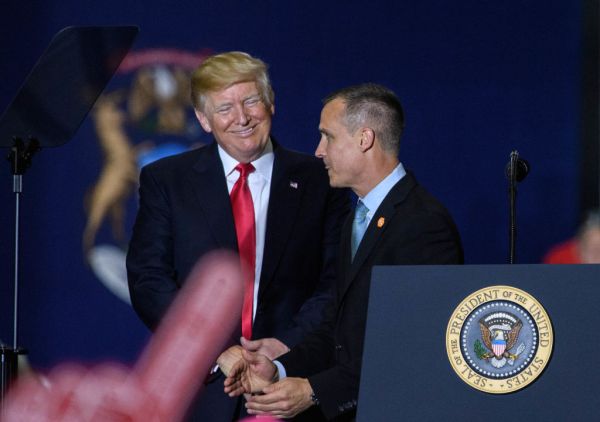

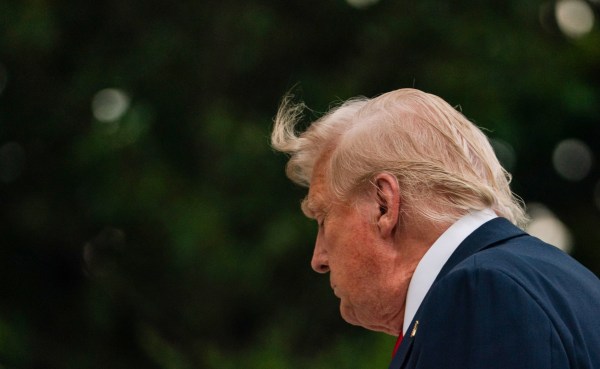



Please note that we at The Dispatch hold ourselves, our work, and our commenters to a higher standard than other places on the internet. We welcome comments that foster genuine debate or discussion—including comments critical of us or our work—but responses that include ad hominem attacks on fellow Dispatch members or are intended to stoke fear and anger may be moderated.
With your membership, you only have the ability to comment on The Morning Dispatch articles. Consider upgrading to join the conversation everywhere.